Immunoglobulin with a tick bite helps to neutralize the tick-borne encephalitis virus in the body of the affected person. This remedy is very effective in the first day after the tick bite. In the following days it can not be used to not cause an allergic reaction of the body to this drug. If you introduce an immunoglobulin to a person who already has this ailment, you can get the opposite effect - the disease will be more severe than usual. Therefore, it is best to avoid walks in the forest, especially oak, picnic trips to the park or to the river during the period of special activity of this insect, since these zones are not always treated with special means. Also, the treatment of areas from ticks is not an absolute guarantee of safety. And at hand may not be the necessary drug.
Immunoglobulin antitussive: instruction
The instruction indicates that the composition of this preparation has the property of neutralizing the encephalitis virus by the enhanced activity of antibodies after a tick bite. It is obtained with the help of the alcohol method from the blood plasma of the donor, into which antibodies to the pathogenic virus are planted. Before you take the blood for the preparation, carry out a thorough diagnosis for the presence or absence of certain inclusions. They include:
- antibodies to the human immunodeficiency virus (HIV);
- antibodies to the hepatitis C and B virus.
Of great importance are the parameters of protein. They should not exceed 16%. Hemagglutinating antibodies to the encephalitis virus should be in the proportion of 1:80. The presence of glycine is mandatory. It is also called stabilizer or aminoacetic acid. In the composition of the drug, its part is 2.5%. The content of antibiotics and preservatives in anti-malignant immunoglobulin is zero.
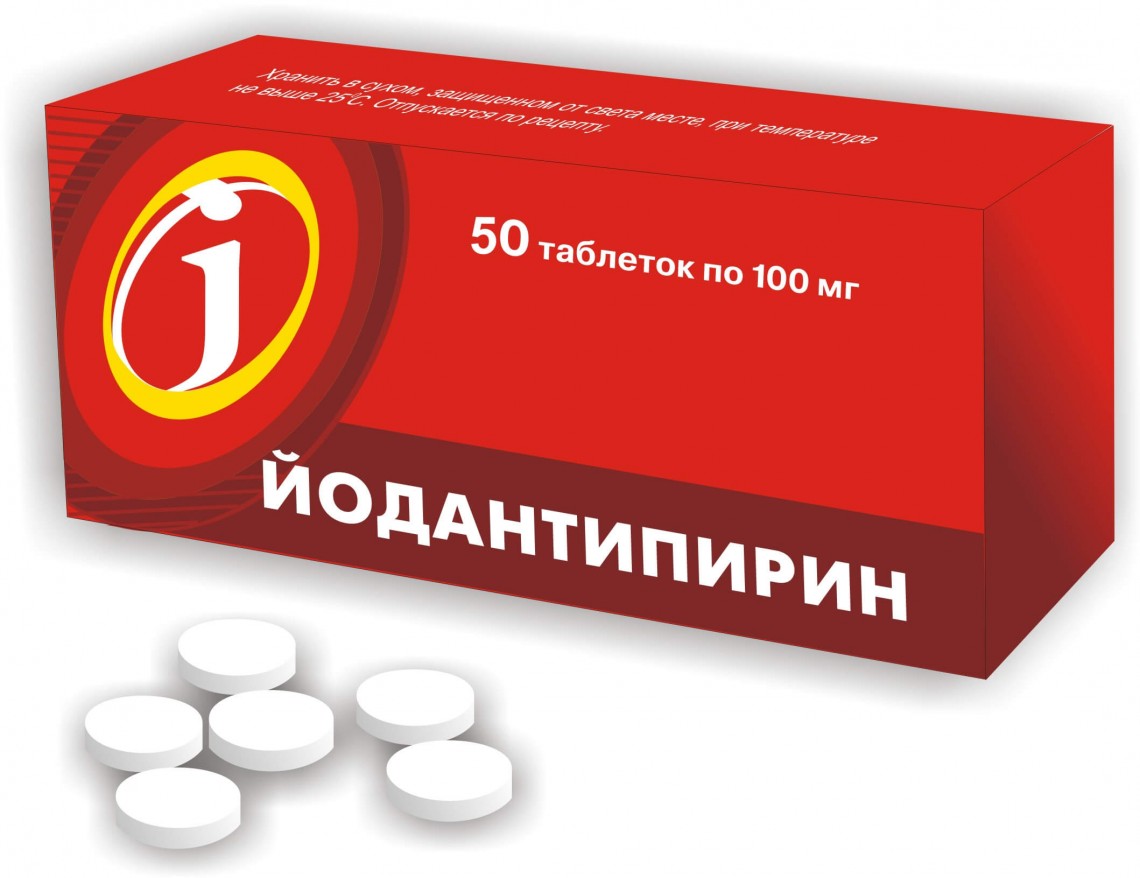
Externally, this drug has a yellowish color. This opalescent liquid can also be transparent. At the bottom of the ampoule, in which the agent is located, it is sometimes possible to observe a precipitate of a whitish-gray color. It completely disappears if the ampule is held in the hands for a while, and then shaken.
It is strictly forbidden to administer the drug intravenously. Everyone who is directly related to the use of this tool should know this. In order to avoid foaming during the introduction, it is recommended to take it in a syringe having a wide lumen. The ampoule that was opened is no longer subject to storage and use of the contents after a while. A medical worker who performs the injection procedure should carefully inspect the ampoule for changes in consistency, color.
Store the ampoules with immunoglobulin in a dry place. The temperature should not exceed 8 ° C. Shelf life - 2 years.
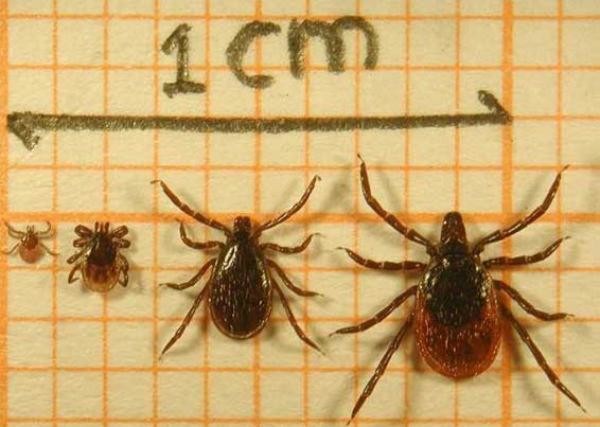
One or two days after the drug has entered the body of the infected, the total concentration of antibodies in the blood is reached.
Immunoglobulin after tick bite: contraindications
Human blood products after a tick bite always present some risk for those who use them. It is insignificant for some and can have fatal consequences for others. Therefore, in our country, the independent use of this drug without the appointment of a doctor is strictly prohibited. In no pharmacy you can buy immunoglobulin without prescription and special documents. The doctor who makes the injection, without fail, registers the drug on a strictly prescribed form. The records indicate the number of the series, the expiration date, the manufacturer, the date of introduction, the dose, side effects.
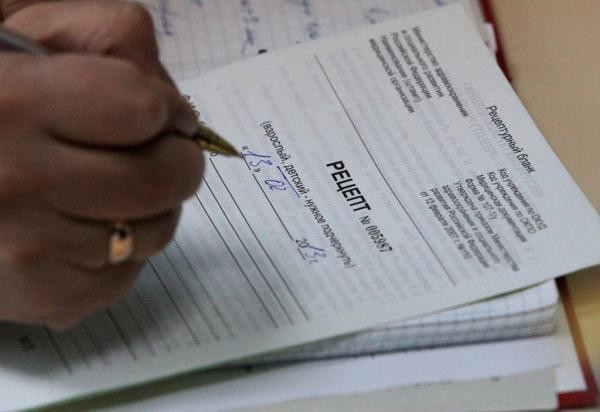
Before the introduction of immunoglobulin, the patient undergoes an examination and a survey for the presence of the following diseases:
- atopic dermatitis;
- asthma;
- recurrent urticaria;
- a pronounced reaction to food allergens.
In some patients, after the use of immunoglobulin, there is a slight increase in temperature, hyperemia, in severe cases, symptoms of anaphylactic shock are possible. To avoid the foregoing, the preparation is divided into several parts of the body and the patient is left under observation for half an hour after its administration.
Immunoglobulin after tick bite: method of application
People who are going to travel to endemic areas to work in the fields to prevent and adhere to safety measures must be vaccinated against tick-borne encephalitis. But not everyone adheres to such rules, which leads to disastrous consequences. Some do only one inoculation, forgetting about the course. Therefore, such unscrupulous patients fall into the risk group in the first place. During the examination, the doctor also conducts a questioning of the victim in order to provide him with the necessary assistance. The preparation of immunoglobulin is administered to them in the first hours after the bite.
If the region where people are located falls into the zone of increased risk of encephalitis infection, the anti-malignant immunoglobulin can be reintroduced to those who have already been vaccinated. After the expiration of a month, this tool is entered again.
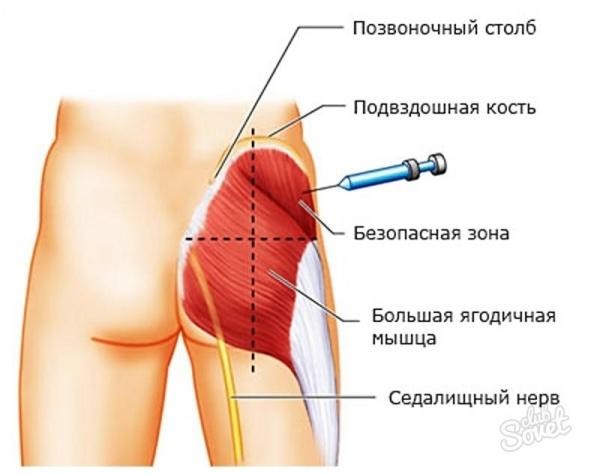
For the prevention of the drug can be used and before the meeting with an unpleasant insect. This complex of measures in medicine is called pre-exposure prevention.
Patients who have erased or abortive forms of tick-borne encephalitis, which manifest themselves in too high and unchanging body temperature, receive an immunoglobulin injection for five days before the general regression of the condition.
Meningeal form of encephalitis requires the use of this drug in a single dose. Injection is prescribed once every ten hours and treated for five days. If the common infection symptoms subsided, the brain function improves, then the treatment is stopped.
The focal form of encephalitis is treated with intramuscular injection once a day with a break of 9-10 hours. Once the neurological symptoms begin to disappear and the body temperature stabilizes, then the treatment is stopped. There is a positive dynamics within 7-8 days from the moment of immunoglobulin administration.
![]()
The above forms of encephalitis can be treated without the use of specific therapy with blood products. But in the future, for medical purposes, the administration is carried out additionally with other drugs. The dosage and the period of administration remain the same.
Severe forms of encephalitis are treated with an increased dosage of immunoglobulin.
Immunoglobulin antifungal increases the resistance of the human body, affected by the bite.
It is considered one of the most dangerous infections for human health from those that are carried by ticks. Pathology is common in a large territory of Eurasia, including in countries of Central and Eastern Europe. Methods of nonspecific prevention, which are based on the destruction of mites by acaricidal means, can not have a wide distribution due to pollution of the environment with chemicals and, moreover, they only have a temporary effect.
What is immunoglobulin used for?
Anyone who has been attacked by ticks can get tick-borne infections through a bite and get sick. Therefore, all victims should conduct immediate diagnosis and prescribe preventive treatment.
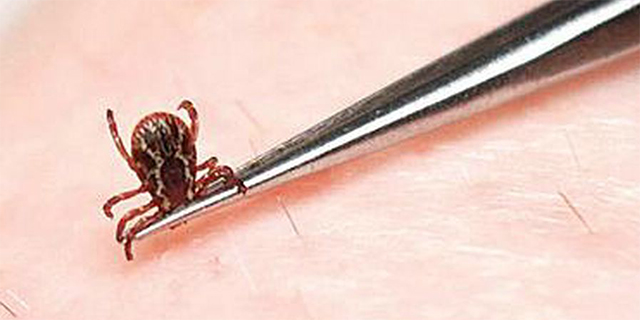
Human immunoglobulin is an immune-active fraction of human serum that contains antibodies to tick-borne encephalitis virus. The tool interrupts the life cycle of the virus at the infection stage and prevents it from multiplying. Biologically active immunoglobulin molecules recognize, bind and remove the antigen from the body.
1 ml of serum containing immunoglobulins binds 600 to 60 thousand fatal doses of the virus.
The effectiveness of the preventive effect of the drug directly depends on the timing of its formulation from the moment of infection with tick-borne encephalitis virus, the dose and the number of antibodies.
When to use immunoglobulin against tick-borne encephalitis
Immunoglobulin should be administered in two cases:
- when there is evidence that the tick contains the tick-borne encephalitis virus;
- before visiting the natural foci of infection in the peak of the activity of bloodsuckers.
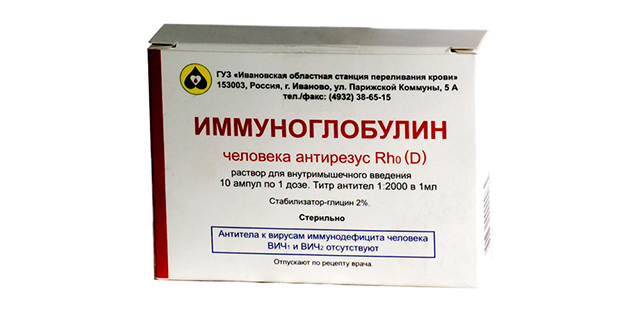
Immunoglobulin is recommended to be put during the first hours after a bite, when there are not so many virus particles and cells infected with the virus. If the virus enters the cell, it becomes virtually inaccessible to antibodies, because the cell wall does not let them in. After 12-18 hours of multiplying virus particles, there is already a lot, which means the onset of the disease.
Other drugs for emergency prevention of tick-borne encephalitis
With a preventive purpose against encephalitis, iodantipyrine is also prescribed. The drug has antiviral, immunomodulating, anti-inflammatory action. It inhibits the penetration of the virus into the cell, increases immunity, mobilizes the body's defenses through the production of interferon. Can be used to prevent encephalitis in place of immunoglobulin as a drug of choice. The main advantages of iodantipyrine include:
- the ability to keep it near you and take it as needed;
- the drug is cheaper than immunoglobulin;
- is available in the form of tablets;
- for storage does not require any conditions.
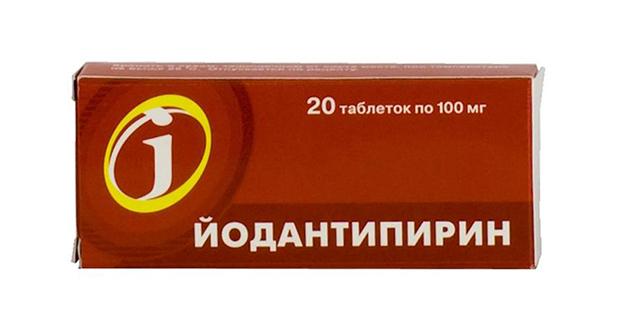
A small antiviral activity against encephalitis is rimantadine. Prophylactic reception begins immediately after tick sucking, but not later than 48 hours. Produced in the form of tablets, taken orally after meals. It has a number of contraindications, after use it may exacerbate chronic diseases.
No means of emergency prevention of tick-borne encephalitis, in its effectiveness, can compare with vaccination and does not give a 100% guarantee. The effectiveness of seroprevention depends on the dose of the virus contained in the tick and the timing of administration.
Latin name:
Immunoglobulinum humanum normale
ATX Code: J06BB12
Active substance:human immunoglobulins
Manufacturer: Microgen, Russia
The condition of leave from the pharmacy: On prescription
When a tick bites, there is a high risk of infection with encephalitis, granulocyte anaplasmosis, borreliosis, monocytic erlichiosis. These diseases are dangerous for humans. Therefore, for prophylaxis with a tick bite, an immunoglobulin prick is used. The drug has a high efficiency in the first 24 hours when an insect is found on the body.
Application of the agent
The instruction of this tool indicates that it is used:
- For the prevention of tick-borne encephalitis for non-immunized individuals
- To prevent infection of vaccinated patients with numerous bites
- For the treatment of infectious diseases with a high temperature when a tick is detected, when an ineffective vaccination is introduced
- As an additional protection after contact with an insect, if the vaccine was administered less than 1 month ago
- Before probable contact with a tick or virus
- For the prevention or treatment of persons with hypersensitivity to vaccination against tick-borne encephalitis
- To prevent infectious diseases from tick bite vaccinated people with insufficient immunization.
Structure of the preparation
This means against tick-borne encephalitis contains in the composition immunoglobulins, which are isolated from human blood. Donors are tested for antibodies to all dangerous diseases. The antibody titer is 1:80.
1 ml of the solution contains:
- Immunoglobulin - 100-160 mg
- Aminoacetic acid 20 mg
- Sodium chloride 9 mg
- Water.
Healing properties
It can be used for prophylactic purposes or in the treatment of tick-borne encephalitis. This is possible due to the activity of substances of class G, which block the action of the virus.
The maximum content of antibodies in the blood is observed 48-72 hours after the administration of the drug. The period of excretion from the body is 4-5 weeks.
Form of issue
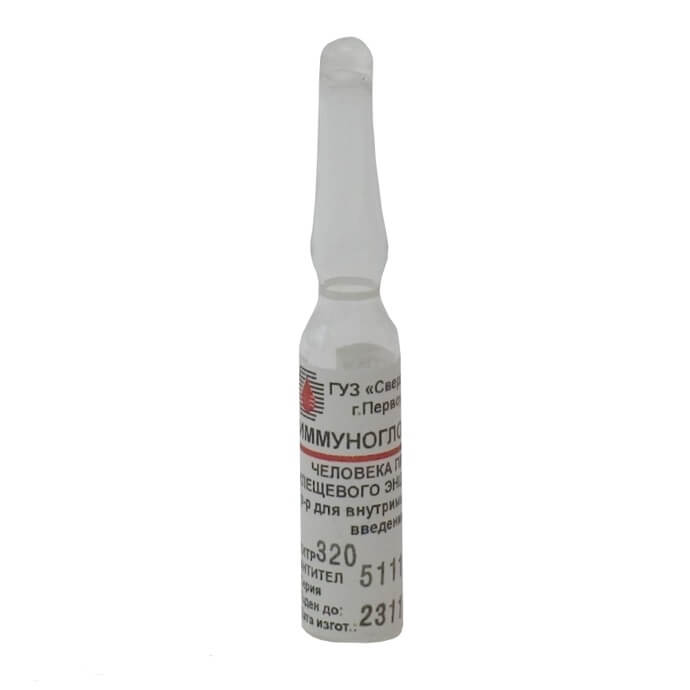
The price of 1 ml of the drug is 600 rubles. The cost of the pack is 5400 rubles.
Form release as a solution. The liquid is clear and colorless. When storing liquid for a long time, there is a high probability of a small precipitate. To get rid of it, you need to shake the solution.
One pack contains 10 ampoules of 1 ml.
Method of use
This solution must be injected intramuscularly into the upper part of the berry or into the external part of the thigh. It is forbidden to inject intravenously.
The dose of immunoglobulin depends on the purpose of administration of the drug:
- One should use 0.1 ml / kg once, if there is a high probability of infection in endemic areas. If necessary, reapply a one-off dose of the vaccine after 1 month
- If the tick is bitten, it can be used for prophylactic purposes against encephalitis 0.1 ml / kg once
- When treating the abortive or febrile form of the disease, put a shot at a dosage of 0.1 ml / kg. It is necessary to continue taking the medication for an average of 4 days until the patient's condition improves. How much you need to use the solution in one course depends on the severity of the disease. The minimum dose of 21 ml of the vaccine
- When the meningeal form of the disease, you can use 0.1 ml / kg. To put an injection should be at intervals of 10-11 hours not less than 5 days. Treatment continues until regress of the main symptoms. The minimum amount of preparation per one course is 70 ml
- In focal form against tick-borne encephalitis put 0.1 ml / kg for 5-6 days with an interval of 8-10 hours. How much to apply a solution for one course is decided by the doctor depending on the severity of the patient's condition. The minimum amount of the drug for one patient is 80-130 ml.
It is necessary to begin treatment no later than 4 days after the insect bite, even if the final diagnosis has not been made. Otherwise, there is a probability of a decrease in the effectiveness of the drug.
The dose of the drug is increased to 0.15 ml with pronounced symptoms. Also, you need to undergo a course of treatment in case of repeated occurrence of symptoms. The drug is used 5-6 days at a rate of 0.1 ml / kg every 8-11 hours.
At pregnancy and thoracal feeding
Data on safety of treatment are absent.
Contraindications
A complete contraindication is the presence of allergies to drugs of this group. Immunoglobulin is used with cross-application of antihistamines in the presence of:
- Asthma
- Dermatitis due to an allergic reaction
- Urticaria, which often recurs
- Allergies to medicines or food.
After using the immunoglobulin, the use of antihistamines continues for 7-8 days.
If a person has a disease that is caused by immunopathological processes, treatment with this drug is possible with the use of concomitant therapy.
Precautionary measures
Antifungal drug is typed with a needle with a large lumen to prevent the formation of foam. After using immunoglobulin, it is necessary to observe the patient for 30-40 minutes because of the high probability of anaphylactic shock. In medical offices, equipment for anti-shock therapy is put in, which allows first aid to a patient with an allergic reaction.
Cross-Drug Interactions
Can be used as part of a combination treatment. A vaccination against rubella, mumps or measles is used 12-13 weeks after the use of the immunoglobulin. The preparation significantly reduces the effectiveness of vaccination with live strains of microorganisms. Vaccination against encephalitis can be used if, after treatment with immunoglobulin, not less than 1 month has passed.
Side effects
Sometimes there are the following reactions of the body, after using a prioentencephalitis drug with a tick bite:
- Hyperemia, pain at the injection site
- Low-grade fever
- The appearance of an allergic reaction.
Overdose
Symptoms and consequences of overdose are not described.
Storage conditions
Anti-encephalitis drug should be stored and transported at a temperature of +2 to +8 ° C. Shelf life of the product is 2 years. Prolongation of immunoglobulin storage is unacceptable. The solution from the opened ampoule must be used completely. You can not keep it.
Analogues
Instead of immunoglobulin, you can drink pills, which is often much better in the treatment or as a prophylaxis of encephalitis.
Yodantipyrine
 Pharmstandard-Tomskkhimpharm, Russia
Pharmstandard-Tomskkhimpharm, Russia
Price: 225 rubles. for 20 tablets, 470 rubles. for 50 tablets
Active ingredient: Iodofenazole. Appearance: white tablets, flat cylindrical with a bevel.
Pros:
- Low cost
- You can drink Yodantipirin to improve immunity
- Shelf life is 3 years at a temperature of not more than + 25 ° С.
Minuses:
- Not as effective as an immunoglobulin vaccine or preparation
- Contraindicated in children, pregnant, breast-feeding.
Remantadine
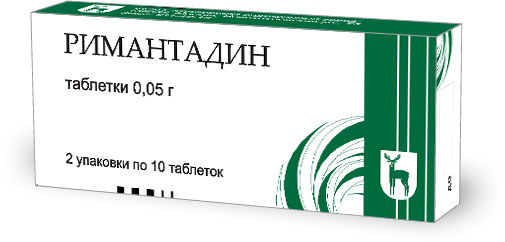 Biochemist Saransk, Russia
Biochemist Saransk, Russia
Price: 80 rubles. for 20 tablets
Active substance: Rimantadine. Appearance: white tablets are odorless.
Pros:
- Low price
- You can drink with the preventive purpose of viral diseases if the tick is bitten for 3-5 days.
Minuses:
- Contraindicated in children under 7 years of age who have a tick
- A large number of side effects that are dangerous for kidney or liver pathologies.
Every person who has been bitten by a tick can be infected with the encephalitis virus. Fortunately, in today's world, there are tools that can fight this virus. One such remedy is anti-malignant immunoglobulin. It is a colorless or slightly yellowish solution, which is administered to a person intramuscularly. It consists of blood plasma from healthy donors, who before blood donation were tested for the absence of HIV, hepatitis B and C.
Properties of the preparation
The maximum effect of immunoglobulin is observed after 24-48 hours after its administration. The half-life of infection from the human body is 21-25 days.
In addition to its main property - the fight against tick-borne encephalitis, 1 ml of the substance fights even with the order of 60,000 different viruses. The drug is considered resistant (the body after its introduction begins to resist any virus, trying to penetrate it). In the whey, a relatively large percentage contains proteins, as well as glycine, which is useful for the body. Does not contain a preparation of preservatives and antibiotics.
When should I use immunoglobulin?
There are two cases when it is necessary to administer the drug:
- You are going to visit places of a large accumulation of encephalitic ticks;
- You have already been bitten by a tick.
In the prevention of tick bites, the injection must be performed 48 hours prior to shipment to the locality where they live. In this case, the drug is activated after about two days and another 4 weeks, providing a steady protection of the body from all viral infections. To provide even more reliable protection, one can be induced from encephalitis one more time, one month after the initial vaccination.
If you did not have time to pre-pack, but the tick bite happened, the drug should be injected into the body in no more than two days. At the same time, the maximum effectiveness of the drug is observed when serum is administered a day after tick sucking. On the second day the probability of complete stopping the development of infection decreases, and on the third day the virus will already penetrate into the cells of the body, and the immunoglobulin can not completely overcome it. If the serum is introduced on the 4th - 28th day after the bite, it will not only fail to fulfill its function, but also aggravate the course of the disease, can cause serious complications.
In the case if the confirmation of the fact of encephalitis penetration into the body was confirmed later than in two days, the drug should be administered after 28 days. During this time, the incubation period of the illness will end. However, in this situation, complete medical supervision is necessary.
Immunoglobulin can be used not only with a tick bite, but also after protracted consequences of the operation, accompanied by penetration into the blood of infection. It is also possible to use serum during pregnancy, in case of maternal infection with a herpetic infection, in order to avoid various complications and transmission of infection to the fetus.
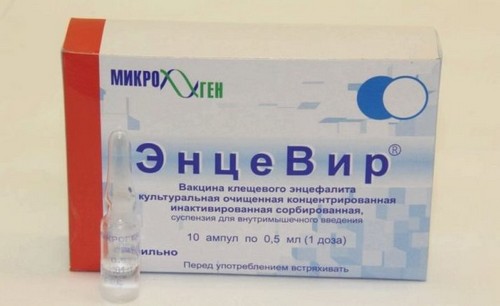
How to apply?
Immunoglobulin is injected intramuscularly (into the buttock or thigh), and it is strongly recommended that the injector is injected by a medical professional and at the same time takes into account all dosages, the dates of administration, the expiration date of the drug and the body's response to it in a special journal. The hospital room should be sterile, like all used appliances.
If the ampoule is already open, and air gets into it, it is necessary to use it immediately and once. Do not use a damaged ampoule, and also carefully monitor the expiration date of the drug. Do not use a turbid solution containing any sediment or insoluble flakes. The preparation should be stored before injection for two hours at a temperature of approximately 20 degrees. In the rest of the time, the drug should be stored in a dark place at a temperature of 2-8 degrees. Serum should not be frozen and stored for more than two years.
The correct dosage can be determined only by the doctor, since there are different forms of encephalitis, in which different reception schemes are used.
When febrile encephalitis is administered, 0.1 ml per 1 kg of human body weight once a day for 3-5 days. Accordingly, for 50 kg of body weight, 5 ml is introduced, and for 80 - 8 ml. In the case of a patient's severe condition and painful symptoms, the dosage should be increased to 0.15 ml per kilogram. The total dose of immunoglobulin for the entire course for an adult should be at least 21 ml.
If the patient has a meningeal form of encephalitis, the serum should be administered at the same dosage of 0.1 ml / kg body weight every 10-12 hours for 5 or more days before feeling better and departing from the symptoms of the disease. With this form of encephalitis, an adult should be administered at least 70 ml per course. preparation.
In focal forms of the disease, serum is administered to the patient at a dose of 0.1 ml / kg of body weight every 8-12 hours, depending on the severity of the patient's condition, for 5-6 days or more until the patient stabilizes and alleviates symptoms. In this case, the adult patient receives 80-130 ml for the course. serum.
If the drug is administered for prophylaxis, rather than treatment, then the vaccine is given once in doses corresponding to age:
- Up to 12 years - 1 ml.
- 12-16 years old - 2 ml.
- Older than 16 years - 3 ml.
Contraindications
Immunoglobulin is considered a dangerous drug and is never released from pharmacies without a doctor's prescription. All due to the fact that drugs made based on the blood of others can lead to various infections and complications.
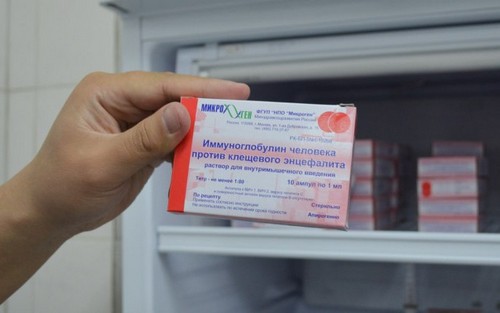
Serum should not be administered if a person suffers from one of the following diseases:
- Bronchial asthma;
- Hives;
- Atopic dermatitis.
Patients who are prone to various manifestations of allergic reactions, the drug prescribed with great caution. Such patients should definitely use antihistamines. They need to be applied throughout the course, and also within 8 days after its completion. During periods of aggravation of an allergic reaction, immunoglobulin vaccination should be coordinated with an allergist.
Particular attention is also required by patients with immunity diseases and diseases associated with the circulatory system. Therefore, it is necessary to ensure that the doctor, when prescribing treatment, takes into account all the patient's illnesses and has made the course correctly.
Possible side effects
As already mentioned, immunoglobulin is sensitive to allergies, so sometimes it can cause allergic reactions. In addition, it is possible to increase body temperature, pain and swelling around the site of the injection. However, usually these symptoms disappear quickly enough.
To avoid anaphylactic shock, the patient should be in the procedure room for another 30 minutes after the injection, and the cabinet should be equipped with special anti-shock therapy.
Immunoglobulin is administered separately from other drugs similar in effect. So, within three months after the introduction of serum, vaccinations against rubella, measles, mumps, as immunoglobulin can interfere with the action of the vaccine, should not be performed.
The use of immunoglobulin at a tick bite is a forced measure that does not allow a person to get infected with a severe infection - tick-borne encephalitis. But many get a tick bite by being in nature and drinking alcohol. What to do in this situation, is it possible to combine the drug and alcohol?
What is immunoglobulin against tick-borne encephalitis?
Antifuel immunoglobulin is a concentrated solution from the purified immunoglobulin fraction. These substances are extracted by alcohol method from blood serum or from plasma. To produce the drug, donor blood is used, in which there are antibodies to tick-borne encephalitis virus. For this, a person must either suffer from this pathology, or be vaccinated from encephalitis.
How does immunoglobulin affect the body? After administration, the drug helps neutralize the virus that has entered the body after a tick bite, since the immunoglobulin already has ready-made antibodies. Also, the drug enhances the nonspecific resistance of the body, thus, does not allow a serious disease to develop.
Specific indications for the use of the drug:
- Multiple tick bites.
- Sucking the tick to the skin of an unvaccinated person, if it is not possible to perform a special analysis of an insect.
- Bite after 1-1,5 months after infection.
The drug against tick-borne encephalitis should be injected into the muscle of the buttock or the external part of the thigh within three days after the bite of the insect. The agent displays the greatest efficacy within 24 hours after the bite, and after 4 days its administration does not make sense.
The dose of the drug is calculated based on the weight of a person - 0.1 mg. per kilogram of weight. It is forbidden to administer a remedy to those who have already had severe reactions to the use of blood products. In the presence of any allergic diseases, the immunoglobulin is administered concomitantly with the administration of antihistamines.
Compatibility with alcohol
To consume alcohol after an injection of such a serious drug as immunoglobulin from tick-borne encephalitis will not come to everyone's mind. Nevertheless, such situations are quite possible, and it is worth exploring in detail what exactly will happen in the body with such a combination.
In the composition of alcohol, and all its types, there is ethanol. This substance destroys all the protective mechanisms that previously worked in the body. Immunity of those who drink alcohol often, is strongly weakened, as well as the work of endocrine organs, liver, CNS. During the intake of alcohol, the liver begins to work hard to process and utilize ethanol. In the body there are toxins, because it develops alcohol intoxication.
If, at this point, to inject into the blood a drug that causes a "surge" in the activity of the immune system and requires an adequate response of all organs and systems, it is easy to imagine that the reaction can be unpredictable. In abusing alcoholic people, the proper response of the immune system may not follow, or this response will be directed against one's own organism - in the form of autoimmune reactions. The same variant of development is often observed in those who already have allergic diseases - asthma, atopic dermatitis.
Effects
Doctors say that the risk for a person with a joint intake of alcohol and with the introduction of immunoglobulin is very high. These substances can be safely called antagonists, so you should prepare for serious and unpredictable consequences. Immunoglobulin in itself is often poorly tolerated by the body, and with "libation" the risk of side effects increases several times.
Such reactions are possible:
- Severe headaches;
- Pressure drop;
- Severe local reactions;
- Increased body temperature;
- Various allergic reactions - a rash, hives.
In severe cases, there is angioedema and anaphylactic shock, cases of death were recorded by combining immunoglobulin and alcohol.
Through how many it is possible alcohol?
Immunoglobulin is injected into the muscle to prevent tick-borne encephalitis once. Therefore, experts note that immediately after the injection you can not drink alcohol for at least 7 days (ideally - for a month, after all, so much protection against the drug lasts). If a month later was repeated injection after a new bite, then the same rules apply.
In the case when a person has already taken alcohol, and then he needed treatment, wait for the time when ethanol is completely disposed of (several hours according to special tables).
conclusions
Proceeding from the presented information, it is possible to draw a conclusion: immunoglobulin against tick-borne encephalitis is ambiguously perceived by the body, since it directly affects the immune system. It has side effects that occur quite often. If you take alcohol on the background of therapy, it will exacerbate the manifestations of "pobochek", and can cause a fatal outcome. Therefore, the joint intake of alcohol and immunoglobulin is strictly prohibited!
Do you like the article? Share with friends on social networks:In contact with
Classmates
And subscribe to site updates in

